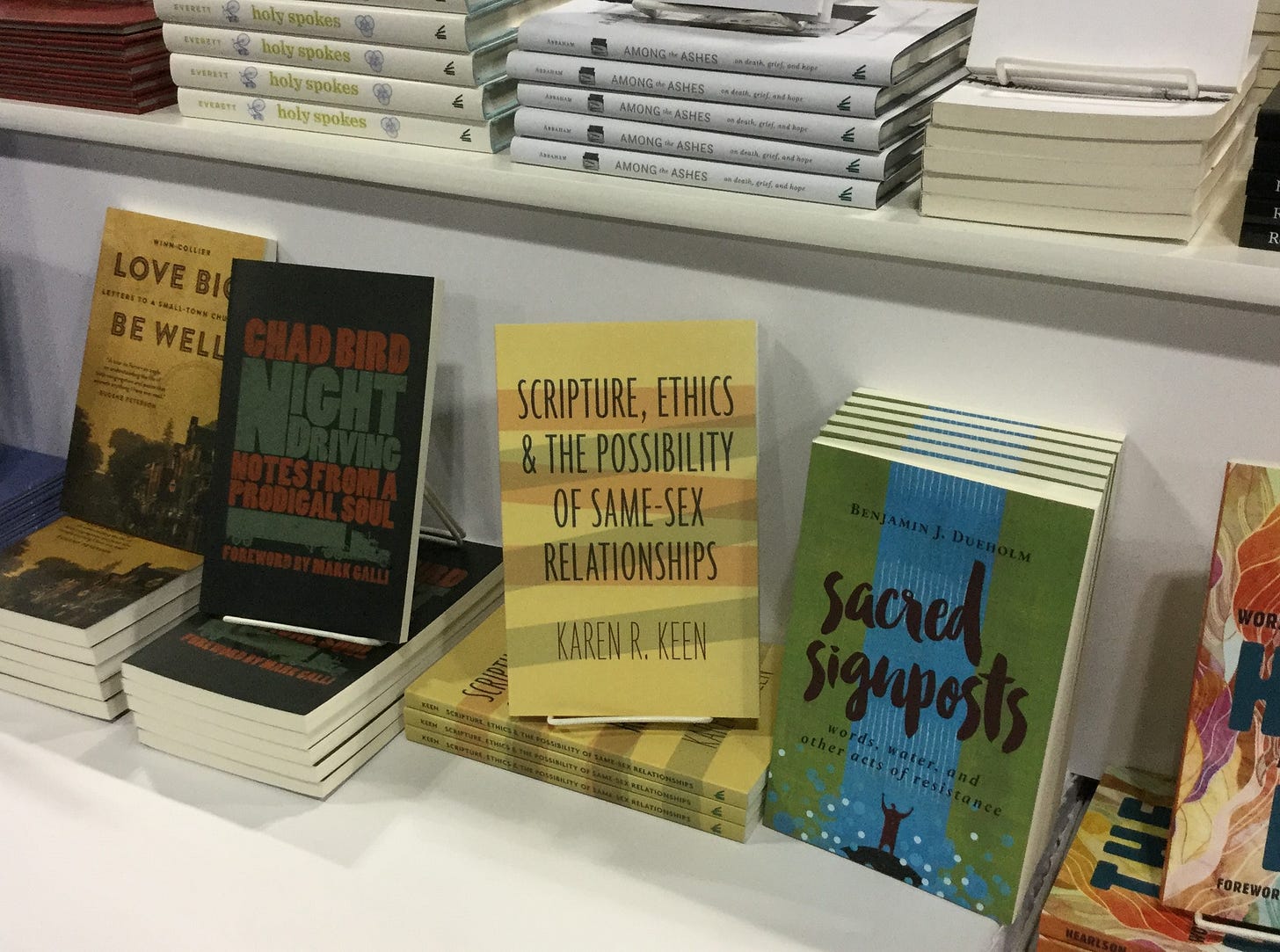The Vulnerability of Writing a Book on Sexuality
Reflections on my first book Scripture, Ethics, and the Possibility of Same-Sex Relationships

In October 2018, my first book released to the public. Scripture, Ethics, and the Possibility of Same-Sex Relationships. I’ve always wanted to be a writer. When I was young I used to sit at the family typewriter and hammer out stories. And my closet is filled with journals detailing pensive thoughts going back to the 2nd grade. But I never imagined I would grow up to write a book on one of the most controversial topics in the church today.
To be honest, it feels vulnerable. I would have preferred to write on a more socially acceptable topic, one that doesn’t carry risks of rejection.
So how did I end up writing about this?
Imagine a typical Christian childhood full of dreams to serve God only to have that screech to a halt at the startling realization that you long to love and marry someone of the same-sex. You don’t know why. You don’t know how these wires got crossed. All you know is the church has told you this type of person is shameful. Suddenly you are forced to grapple with an issue you probably wouldn’t have otherwise given much thought. In fact, you think about it every day for two decades.
After twenty years of observing the church’s debate, studying Scripture, reading theologians from opposing sides, and seeking to walk with Christ, I felt a moral responsibility to share what I have learned.
Books on homosexuality and Christianity are a dime a dozen these days. But, gaps in the conversation compelled me to chime in. Currently, the debate is at a stalemate because reformists (affirming folk) and traditionalists often talk past each other. Reformists rightly point out that same-sex relations in antiquity were primarily exploitative. At the time the biblical authors wrote, same-sex relations commonly occurred in the context of pederasty (adult men having sex with teenage boys), prostitution, or sex with slaves. Reformists argue that the biblical authors did not address the issue of monogamous, covenanted same-sex relationships. Yet, traditionalists make their case from a completely different angle, based on Genesis and the concept of complementarity of male and female, which they view as a timeless creation ordinance that transcends culture.
Some of the questions that my book delves into are:
What is complementarity about and is that a reason to prohibit same-sex relationships?
If male-female complementarity is a creation ordinance (as traditionalists believe), how do the biblical authors handle creation ordinances in challenging situations?
What is the meaning of Old Testament laws for Christians? Does the Levitical prohibition against same-sex relations apply today? Why or why not?
Do the biblical authors ever reinterpret or set aside scriptural mandates to take into consideration contextual concerns? If so, how?
What evidence is there that life-long celibacy is possible for every person? And if evidence shows it is not, how do we address this ethical dilemma for gay or lesbian people?
What does it mean that humanity is “fallen”? Should same-sex attraction be understood as moral fallenness, natural fallenness, or simply human variation that is not fallen at all? On what basis do we make this determination?
Is it possible to accept and support same-sex relationships while still being a traditionalist?
What does it mean, theologically and practically, to become fully affirming of same-sex relationships?
My hope is that, whether or not a reader agrees with all of my conclusions, this book will demonstrate that there is more to be said about the Bible and same-sex relationships. Ultimately, I hope that realization will empower the church to respond in life-giving ways that edify and build us up as the Body of Christ.
Have you read Scripture, Ethics, and the Possibility of Same-Sex Relationships? You can get it now.





